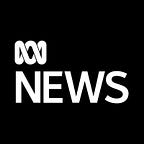US Election 2016: Palpable fear in the Imperial City
By Bruce Wolpe in Washington DC
Washington DC. You can feel it here. In your bones. The political classes in Washington are frightened and dazed, afraid that Donald Trump can win this election, reflecting a changed America they do not know or understand any more. The Imperial City is seized with it.
There was a jolt through the capital in May, when Trump became the presumptive Republican nominee, with the realisation that this man was one vote away from becoming president.
The anxiety subsided in the aftermath of the two conventions, when his gains were eclipsed by Hillary Clinton’s, and she established a near double-digit lead in the polls and an impending Electoral College landslide.
But a management change in the Trump organisation led to a candidate who is perceived to be, with some glaring exceptions, more measured and subdued; he was so outrageous that any calming effect is seen as real growth or progress.
The bar by which Trump is viewed as having become “more presidential” is below limbo level.
Trump has a vicious attack style that is now clearly a strategic weapon: he discerns his opponent’s fault line of vulnerability, and hammers away at it mercilessly, like ice seeping into a rock on a glacier, until he or she cracks open (“Little Marco” Rubio, “Lyin’ Ted” Cruz, “Low Energy” Jeb Bush).
“Crooked Hillary” has stuck, and the “damn emails” have taken their toll on Clinton’s trust. Similarly, the sowing of doubts that Clinton does not have the health or stamina to be president paid off with her pneumonia and tardy disclosure of it only after her illness was captured by video at Ground Zero.
Trump is a street fighter with an arsenal of knives.
The hits Hillary has taken have dragged her down to Trump’s level of unfavourability on honesty and trust. Together with her chances of winning now declining, Washington has been jolted into high anxiety if not panic.
And the talk in this city is not about her as a candidate and what she is saying and doing, but always about Trump (with Trump, it is always all about him) and how close he is to winning and what it all means about the country and its future.
As the shaken denizens of Washington sip their shaken martinis, they see Trump as Brexit on steroids: the June vote in the UK was the tremor that precedes The Big One.
Is this what America will really do?
The last time Washington faced such a tidal wave was 1980, when Ronald Reagan, riding a surge of rejuvenated conservatism born in the American West, with its colourations of freedom and American exceptionalism, trounced the Democrats.
The Reagan agenda upended a generation of legacy programs from the Kennedy-Johnson era of the Great Society, and promised a more muscular and confrontational America with respect to the Soviet Union.
The Republicans were united in this new conservative paradigm that has endured until Trump, whose security, trade and welfare policies would have sent the Gipper into orbit.
2016 should be a change election. Since FDR, only with George H W Bush succeeding Reagan has a party held the White House for three successive terms. Given the economic angst in the country, and the political angst against Washington and how it works, this is the natural, cyclical political burden Hillary Clinton is trying to surmount.
The big difference today, of course, is that Trump scares the hell out of this city on a bipartisan basis: his hostile takeover of the Republican Party threatens the Republican establishment as much as the Democrats — and probably even more given the divisions the Republicans have yet to heal over the future of their party and their engagement with an America whose demographic trajectory is relentlessly changing.
Who is the ‘safe’ choice?
What will it take for Trump to overcome the belief he is a really risky bet, without the proper temperament or qualifications, to be president?
It goes back to Reagan and how he did it. In the debates with Jimmy Carter in 1980, Reagan did two things: he came across as genial, decent, warm and caring deeply about the country and its future. And he then asked the killer question: “Are you better off than you were four years ago?”
Carter had failed miserably to rescue American hostages held for over 400 days in Iran, and the country was in terrible economic shape. Malaise ruled the land. The sunny optimist, who said that America’s best days were yet to come, triumphed.
Trump is no sunny optimist. He uses anger against Washington and nativist fear of people of different colours and faiths to capitalise on the mood baying for change in the hated Imperial City. It matters less thatin 2015, income in America was up 5.2 per cent, and there have been eight years of economic growth, the number of Americans without health insurance has been halved, and poverty has decreased.
It seems to matter more that for nearly 60 per cent of citizens their outlook for their economic future is that it will be worse.
Hillary Clinton cannot simply tie Donald Trump next week in the first presidential debate.
If she is to win this election, she has to best him on that stage, and be seen to beat him decisively so he is not seen as the “safe” choice Ronald Reagan became to Middle America.
Nothing less will do if she is to restore the equilibrium required for her to win and the Obama legacy to endure.
Bruce Wolpe was on the Democratic staff in Congress in President Obama’s first term. He is a supporter of Hillary Clinton’s campaign. He is chief of staff to former Prime Minister Julia Gillard. The views posted here are solely and exclusively his own.
